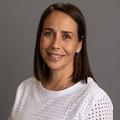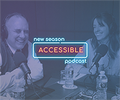Council on Leadership in Advocacy (COLA)
Download this one page flyer about COLA to print or share. ![]()
The AUCD Board of Directors has established a number of Councils and Committees that are made up of experts in the field to help the Board address emerging trends and issues, and to facilitate communication across and beyond the AUCD network. The Council on Leadership in Advocacy, also known as COLA, is made up of individuals with disabilities and family members from each University Center across the AUCD network. COLA members are involved in Community Advisory Councils at University Centers for Excellence in Developmental Disabilities (UCEDDs), AUCD Councils and Committees, AUCD Special Interest Groups, and other advocacy opportunities. Membership is open to anyone in the AUCD network. However, each center will designate an individual representative who will cast one vote when a matter before the Council requires such action.
Mission
The mission of the AUCD Council on Leadership in Advocacy (COLA) is to advise and assist the AUCD network to enhance the quality of life for individuals with developmental disabilities and their families. COLA works to enhance AUCD by fostering and supporting current and new leaders with lived experience of disability, including their family members in order to promote this same leadership in their programs, communities, and regions, and to serve in liaison roles with local disability leadership. The Council helps the association to:
- Build effective partnerships with other AUCD Councils and Committees, federal agencies, and other national disability groups.
- Build the capacity of local University Center Consumer Advisory Committees (CACs), including identifying needs for assistance, providing technical assistance, and disseminating information about exemplary and innovative practices.
- Envision, actively advocate for, and disseminate information about the next generation of policy and practice that will help make the promise of full participation a reality.
- Develop leaders and mentors that build the capacity of the network to affect change at the local, state, and national levels.
- Assist in the development of standards for participation of people with disabilities and family members in UCEDD education, research, and service programs and in AUCD functions.
- Serve as a model and resource for others desiring to infuse the participation people with disabilities and family members into program planning, research, and evaluation.
Purpose
The purpose of the Council is to enhance the Association by fostering current and new leaders with lived experience of disability, including their family members, to promote leadership in their programs and communities. Council membership will expand to include directors, faculty, staff, and advisors at center programs, and CAC members.
History
The Council on Consumer Affairs first convened in the fall of 1994; the name was later changed to the Council on Consumer Advocacy. The Council was formed as a result of AUCD's (formerly AAUAP) increasing recognition of the importance of receiving consistent and ongoing consumer feedback. Start-up activities were funded by the Administration on Developmental Disabilities, through a Project of National Significance entitled "Leadership and Choices." Principle support was provided by Bruce Eddy of AUCD and Carl Calkins of the University of Missouri/Kansas City, Missouri's UCEDD.
The Council leadership structure includes several internal committees and two co-chairs. 1998 By-Laws stipulate that one co-chair must be an individual with a disability, and the other be the family member of an individual with a disability. The three-year, staggered co-chair positions carry with them a slot on AUCD's Board of Directors.
Full Council membership consists of one representative of each UCEDD, designated by that UCEDD's director. The Council continues to strive to meet its long-term goal of full membership.
In 2003-2004, AUCD made a commitment to revitalize the role of COCA within the network. Past President of AUCD, David Johnson appointed an ad hoc COCA Workgroup. This workgroup, chaired by Carl Calkins, solicited feedback from the AUCD network and met several times to develop a renewed vision to strengthen the role of COCA. A final set of recommendations was produced and presented to the board and UCEDD Directors at the UCEDD Directors' retreat May 2-3, 2005 in Chicago, IL.












